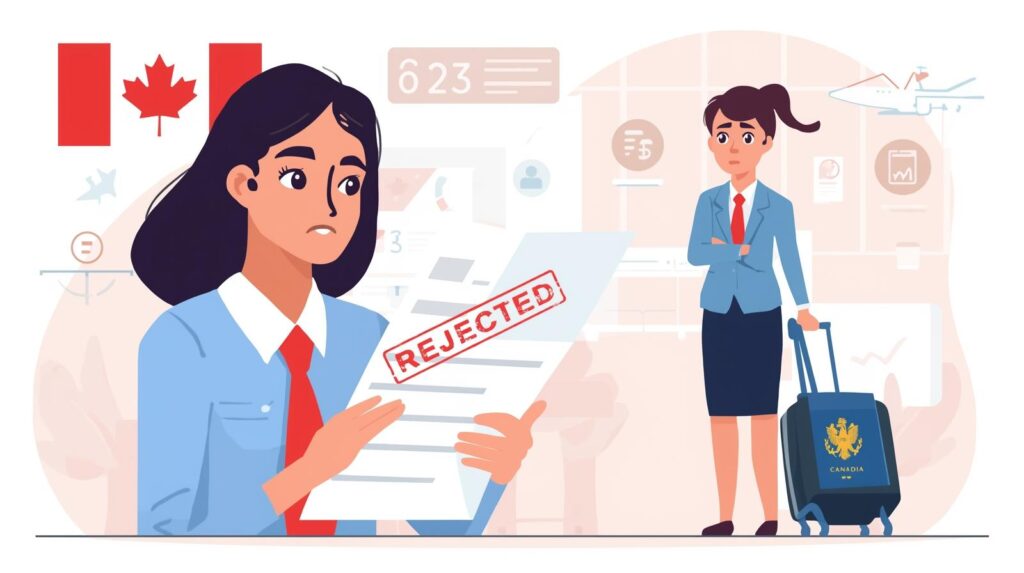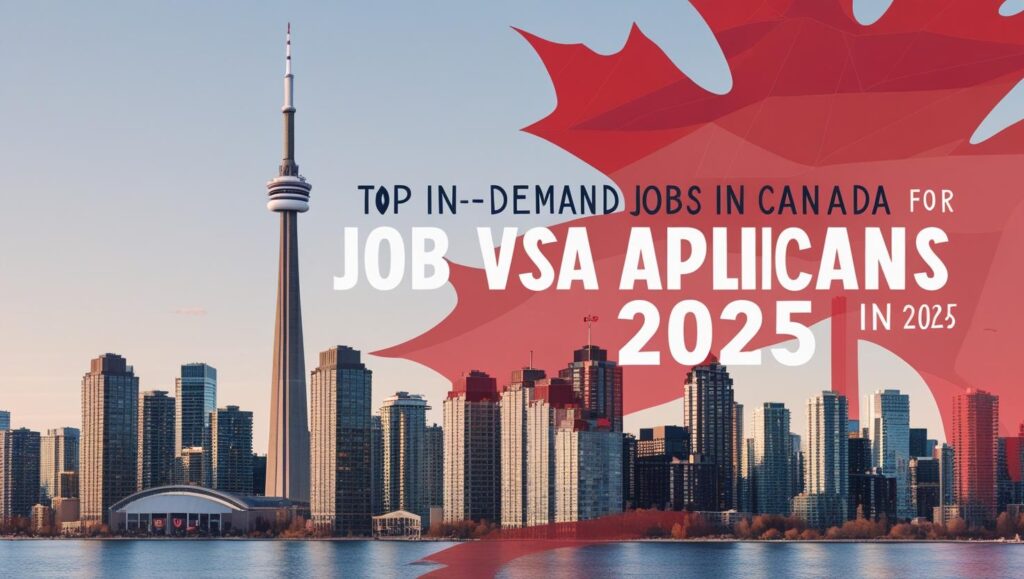Applying for a Canadian visa is exciting—but nothing feels worse than seeing that dreaded word: “Refused.” Every year, thousands of applications are denied, leaving applicants frustrated and confused.
The truth is: many rejections could have been avoided if applicants understood the real reasons behind visa refusals. Government websites list the rules, but they often use complex, legalese that is difficult to understand.
This guide will save you time by explaining in simple language:
-
The main reasons Canadian visas are refused (with examples).
-
How to fix or avoid these issues in your own application.
-
Common mistakes people make—and how to not repeat them.
-
Pro tips for stronger applications in 2025.
By the conclusion, you’ll understand why visas are denied as well as how to improve your chances of being approved.
The #1 Main Reason for Canada Visa Rejection
The single biggest reason most Canada visa applications are rejected is failure to prove strong ties to your home country.
IRCC (Immigration, Refugees and Citizenship Canada) wants to be sure you’ll return home when your visa expires (unless you’re applying for permanent residence). If your application doesn’t clearly show this, officers often assume you may overstay—and reject your visa.
Examples of weak “home country ties”:
-
No stable job or business back home.
-
Little or no family connections in your country.
-
Limited financial assets (property, savings, investments).
-
Vague travel purpose or missing documents.
👉 Pro Tip: Always show evidence that you have reasons to return—like employment letters, property ownership, or family commitments.
Other Common Reasons for Canada Visa Rejection
While “weak home ties” is the #1 reason, there are several other factors that often lead to refusal. Here’s a full breakdown:
1. Incomplete or Incorrect Application
-
Missing documents (like bank statements, invitation letters, or photos).
-
Forms not signed or outdated.
-
Incorrect information (like mismatched dates).
✅ Fix: Double-check all forms and documents. Use IRCC’s official document checklist.
2. Financial Insufficiency
-
Not showing enough funds to support your stay.
-
Submitting weak proof (unclear bank statements, borrowed money).
✅ Fix: Provide clear evidence of stable income, savings, or sponsorship. IRCC needs to see that you won’t struggle financially in Canada.
3. Travel History Concerns
-
No prior international travel, or overstaying in another country.
-
Past visa refusals from other countries.
✅ Fix: If you have limited travel history, strengthen other areas (employment, finances, family). If you’ve had past refusals, explain honestly with supporting documents.
4. Purpose of Visit Not Convincing
-
Vague or unclear reason for visiting (e.g., “tourism” with no plan).
-
Study or work visa applications that don’t match your background.
✅ Fix: Submit a detailed travel itinerary, admission letter (for study), or valid job offer (for work).
5. Documentation Issues
-
Fake or inconsistent documents.
-
Translations missing for non-English/French papers.
✅ Fix: Only use authentic documents. If translated, use certified translators.
6. Medical or Security Concerns
-
Not passing the immigration medical exam.
-
Background checks raising red flags.
✅ Fix: Submit all required medical results. Ensure your history is transparent.
Quick Comparison Table: Top Visa Rejection Reasons
| Reason for Refusal | Explanation | How to Avoid |
|---|---|---|
| Weak Home Country Ties | Officer fears you won’t return | Show job, family, property proof |
| Incomplete Application | Missing/incorrect documents | Use IRCC checklist |
| Financial Insufficiency | Not enough proof of funds | Provide bank statements, sponsor letters |
| Travel History Concerns | Overstays or no prior travel | Strengthen other areas |
| Unclear Purpose of Visit | Weak explanation | Submit itinerary, job/study letter |
| Documentation Issues | Fake/missing docs | Use genuine, translated documents |
| Medical/Security Issues | Failed checks | Be transparent, follow medical requests |
Expert Advice on How to Prevent Canada Visa Refusals in 2025.
-
Write a Strong Cover Letter → Explain clearly why you’re visiting, how you’ll pay for your stay, and why you’ll return home.
-
Organize Your Documents → Use a checklist and label everything. Officers appreciate clarity.
-
Show Financial Stability → Bank statements should be recent, consistent, and match your story.
-
Be Honest → Never hide past visa refusals or misrepresent facts.
-
Apply Early → Processing delays are common. Don’t apply last minute.
What to Do If Your Canada Visa Gets Rejected
Rejection isn’t the end of your journey. You still have options:
-
Read the refusal letter carefully → It lists the reasons.
-
Order GCMS Notes → These are internal officer notes that explain the real reason in detail.
-
Fix mistakes and reapply → Address the issues directly in your new application.
-
Consider professional help → An immigration consultant or lawyer can guide you through complex refusals.
FAQs Regarding Rejected Visas for Canada
1. Can I apply again after my visa is refused?
Yes. You can reapply anytime, but make sure you’ve corrected the issues that caused the refusal.
2. Does a visa refusal affect future applications?
Not directly. But repeated refusals without addressing the problem can harm your chances.
3. How do I prove strong home country ties?
Provide employment letters, property ownership, family details, or financial commitments.
4. Can hiring an immigration consultant improve my chances?
Yes—especially if your case is complex. They can help organize documents and strengthen weak areas.
5. How much money is enough to show proof of funds?
It depends on the visa type and length of stay. For visitors, at least CAD $2,000–3,000 per month is a safe estimate, but check IRCC guidelines.
Final Remarks
Refusing to convince the IRCC that you will return home is the primary cause for denying a Canada visa. The main culprits include weak ties, inadequate records, and imprecise aims.
The good news? Most rejections are preventable. By preparing carefully, being honest, and presenting a strong case, you can dramatically increase your approval chances in 2025.




Heard good things about 337jili. Lots of my friends down at the pub are playing, so I guess I will check it out to see what the buzz is about. Find out more : 337jili